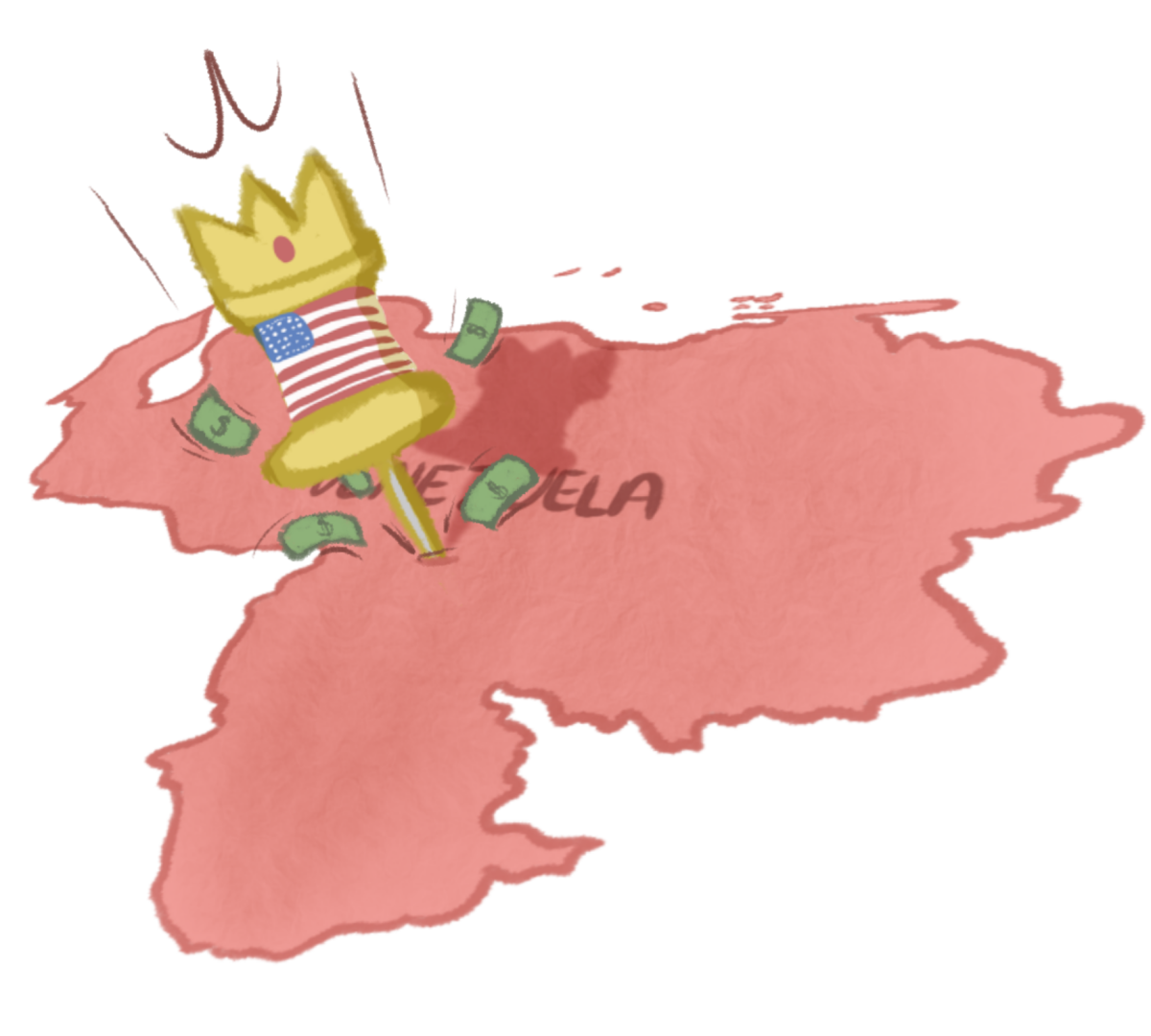
Graphic by Alesandra Bell | Mercury Staff.
Why US Intervention in Venezuelan politics promotes imperialism
Juan Guaido, who did not receive a single vote in
Venezuela’s elections, swore himself in as president of Venezuela on Jan. 23.
Guaido’s
declaration follows the controversial elections in May 2018. The elections were
originally scheduled for December but were pushed up to May. In response,
United States officials rejected the re-election of President Nicolas Maduro.
In recent days, coverage of Venezuela has been decidedly anti-Maduro, but this
coverage fails to see the issues deeply embedded in the Venezuelan opposition.
Guaido did not participate in the May 2018 elections.
However, both the United States and the European Parliament recognize Guaido as
the leader of Venezuela. According to a report from The New York Times, the U.S.
State Department has even given Guaido control over U.S. bank accounts of the
government of Venezuela. This interference from the U.S. and E.U. jeopardizes
the sovereignty of Venezuela and should be stopped.
Under Hugo Chavez, Maduro’s predecessor, Venezuelan oil
fields that were previously operated by American companies ExxonMobil,
ConocoPhillips and Chevron were nationalized, boosting the Venezuelan economy.
Maduro was Chavez’s chosen successor, with Chavez urging voters to vote for
Maduro if Chavez were to die. Since Chavez’s passing, Maduro has maintained
many of Chavez’s policies, including keeping Venezuelan oil reserves in
Venezuelan hands. It is no coincidence that Guaido, in communications via an
envoy, has shown a desire to privatize these oil reserves, allowing for
American companies to return. Guaido’s communications with the U.S. encourage political and military intervention
to further transfer power to Guaido.
In late January, the Trump administration placed oil
sanctions on Venezuela to further damage Venezuela’s hurting economy, stirring
political unrest. But Venezuela is not our enemy. President Maduro is not a
threat. Under both Chavez and Maduro, Venezuela gave hundreds of millions of
gallons of heating oil to homeless shelters, households in poverty and
indigenous people in a program that lasted from 2005 to 2017. After Hurricane
Katrina, President Chavez donated a million barrels of oil and $5 million to
the relief effort.
But beyond these issues, there are problems with the
anti-Maduro opposition that are hardly recognized in American media. Chavistas,
the term for supporters of Chavez and politicians similar to him, are often
stereotyped as being poor, uneducated and dark-skinned. In 2017, during
anti-Maduro protests, Orlando Jose Figuera was burned alive by opposition protestors
for being a suspected Chavista. Figuera was black.
To interfere with Venezuela’s elections by recognizing
Guaido as president is to delegitimize the democracy of a country that has
helped Americans in tangible ways. But to profit off a change in regime and the
destabilization that comes with it is sinister. UTD is a diverse and
understanding community that should see Venezuela as a country that has been
damaged by American interference, not one that can be helped by it.
The U.S. has previously used official recognition of
illegitimate rulers for personal gain. In 1952, Fulgencio Batista staged a coup
three months before the Cuban elections. Despite there being no election, the
U.S. recognized Batista as the president of Cuba. By the late 1950s the U.S.
owned a significant portion of Cuban industries. President John F. Kennedy
recognized this in a 1960 speech.
“At the beginning of 1959,” Kennedy said, “U.S. companies
owned about 40 percent of the Cuban sugar lands, almost all the cattle ranches,
90 percent of the mines and mineral concessions, 80 percent of the utilities
and practically all the oil industry and supplied two-thirds of Cuba’s
imports.”
The U.S.
has made the mistake of interfering in foreign elections for economic gain
before. We should remember the one-sided profit and instability that comes with
it.
One way we can help the citizens — specifically working
class people — of Venezuela is to better understand the complexities of the
issues surrounding Venezuela. It’s also important to remember that most voices
from Venezuela heard in the west are the voices of privileged Venezuelans, not
those of the working class or marginalized. U.S. imperialism has many faces and
we should know all of them. Supporting any kind of intervention in Venezuela is
supporting imperialism.
We have seen the tensions that emerge from imperialist
attitudes in our own communities. Don’t mistake American interference for
American generosity. Imperialism manifests itself in several ways, and it’s on
us as students in a community that values diversity to detect the differences.